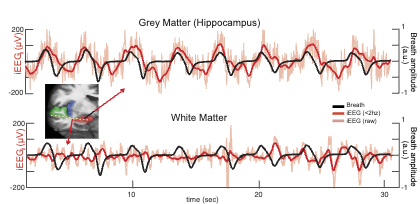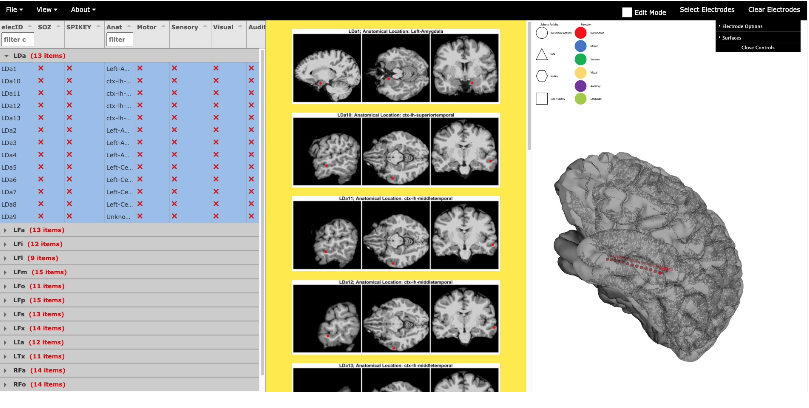Research
Research in the Human Brain Mapping Lab aims to map functional networks in the human brain, by working with patients with epilepsy who have electrodes implanted in, or on, their brains as preparation for surgery to treat their seizures.
While patients are implanted with the intracranial EEG electrodes and are waiting to have seizures, we take advantage of the incredibly valuable opportunity to record EEG directly from the brains of these awake and behaving humans while they perform various tasks. We also make use of additional multimodal data such as anatomical and functional MRI, DTI, CT, PET, Neuropsychological testing, eye tracking, and other physiological measures (e.g., breathing, EKG etc.). If you want to learn more about the method, read our recent book chapter, or refer to many of the available excellent other review papers.

Some questions we seek to answer:
- How does the brain encode certain cognitive proccesses such as decision-making, speech and face perception?
- What are the steps involved in memory encoding, consolidation, and retrieval?
- What are the mechanisms controlling intero- and exteroception?
- What are the mechanisms underlying seizure onset, propagation, and termination?
In all of those questions we are interested in:
1) what the underlying neural mechanisms are that control them. Specifically, one big topic in our lab is to determine what the role of neural oscillations is in coordinating brain activity.
2) we are interested in how we can use electrical stimulation, both non-invasively and directly in the brain, to interfere and ideally enhance with specific cognitive function.
We are a very collaborative lab and work with many national and international groups. Contact us if you are interested in becoming a collaborator!
Project highlights
(…in progress)
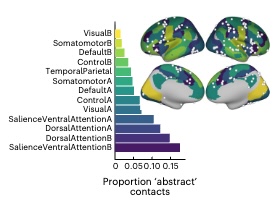
We study the process of evidence accumulation and decision formation in the human brain.
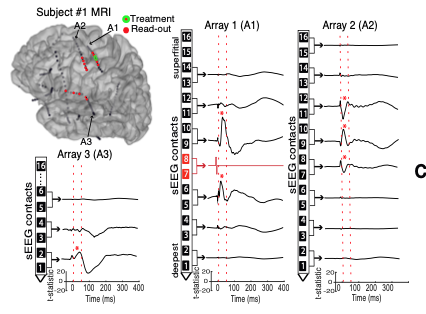
We use electrical stimulation to study the brain and ideally find new treatments for neuro-psychiatric disorders. Ex2 Ex3
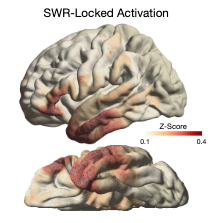
We study the brain coordinates different brain areas in the formation and recall of memories. Ex2 Ex3

